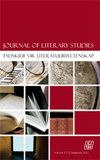津巴布韦的Gukurahundi:知识灭绝和种族灭绝
IF 0.1
4区 文学
0 LITERARY THEORY & CRITICISM
引用次数: 5
摘要
在政治冲突和战争中,真理成为牺牲品,成为权宜之计祭坛上的牺牲品,这一观察可以追溯到古希腊悲剧家埃斯库罗斯。并非偶然的是,研究悲剧和邪恶运作的学者注意到,在个人和人类群体在武装行动中被那些试图通过不择手段的手段征服、支配和统治他人的人屠杀之前,真理和知识是如何首先被谋杀的。1983年至1987年在津巴布韦发生的古库拉洪迪种族灭绝始于罗伯特·穆加贝和他的津巴布韦非洲民族联盟爱国阵线(ZANU-PF)政党希望实行终身总统一党制的国家统治。要实现这一黑暗目标,必须消灭以津巴布韦非洲人民联盟(津联)为形式的政治反对派。进行了各种政治建构、命名和标记,以便为对西联及其领导人乔舒亚·恩科莫的武装行动创造条件和辩解。那些必须被消灭的人的政治和人类身份变成了敌人、持不同政见者、蛇和糠本身。关于Gukurahundi种族灭绝,学者们普遍关注围绕死亡人数和杀戮的持久影响的争议。本文是对发生在古库拉洪迪种族灭绝之前、伴随和之后的对真理和知识的暗杀,即知识灭绝的思考。真相和知识在种族灭绝之前、期间和之后消亡。本文章由计算机程序翻译,如有差异,请以英文原文为准。
Gukurahundi in Zimbabwe: An Epistemicide and Genocide
Summary That in political conflict and war the truth becomes a casualty that is sacrificed on the altar of expediency is an observation that is traceable to the ancient Greek tragedian, Aeschylus. It is no accident that it had to be a student of tragedy and the workings of evil who noted how truth and knowledge are the first to be murdered before individuals and populations of human beings are slaughtered in armed operations by those that seek to conquer, dominate and rule others by hook or by crook. The Gukurahundi Genocide of 1983 to 1987 in Zimbabwe began with the desire by Robert Mugabe and his Zimbabwe African National Union Patriotic Front (ZANU-PF) political party for oneparty state rule under a life presidency. For that dark goal to be achieved the political opposition in shape of the Zimbabwe African People's Union (ZAPU) had to be eliminated. All manner of political constructions, naming and labelling were conducted to create the conditions for and justification of an armed operation against ZAPU and its leader, Joshua Nkomo. The political and human identities of those that had to be eliminated were changed to enemies, dissidents, snakes and chaff itself. On the Gukurahundi Genocide, scholars have prevalently dwelt on controversies surrounding the numbers of the dead and the enduring effects of the killings. This article is a consideration of the assassinations of the truth and knowledge, the epistemicide, which preceded, accompanied and followed the Gukurahundi Genocide. Truth and knowledge die before, during and after genocide.
求助全文
通过发布文献求助,成功后即可免费获取论文全文。
去求助
来源期刊

Journal of Literary Studies
Multiple-
CiteScore
0.50
自引率
0.00%
发文量
0
期刊介绍:
The Journal of Literary Studies publishes and globally disseminates original and cutting-edge research informed by Literary and Cultural Theory. The Journal is an independent quarterly publication owned and published by the South African Literary Society in partnership with Unisa Press and Taylor & Francis. It is housed and produced in the division Theory of Literature at the University of South Africa and is accredited and subsidised by the South African Department of Higher Education and Training. The aim of the journal is to publish articles and full-length review essays informed by Literary Theory in the General Literary Theory subject area and mostly covering Formalism, New Criticism, Semiotics, Structuralism, Marxism, Poststructuralism, Psychoanalysis, Gender studies, New Historicism, Ecocriticism, Animal Studies, Reception Theory, Comparative Literature, Narrative Theory, Drama Theory, Poetry Theory, and Biography and Autobiography.
 求助内容:
求助内容: 应助结果提醒方式:
应助结果提醒方式:


